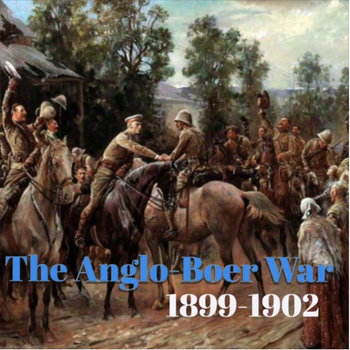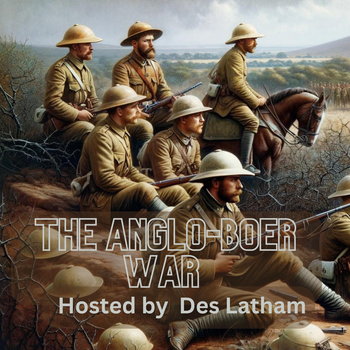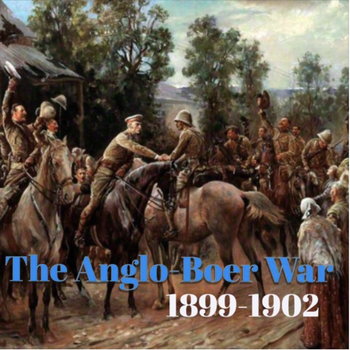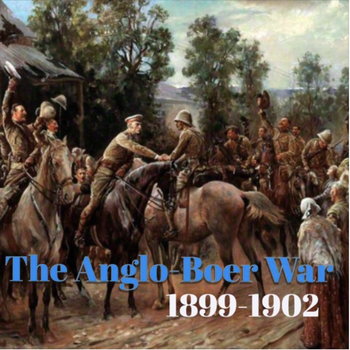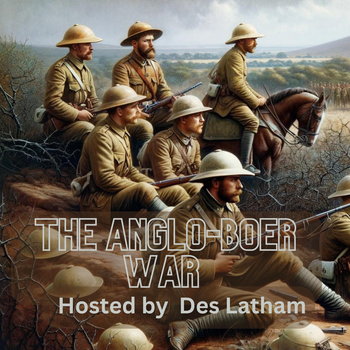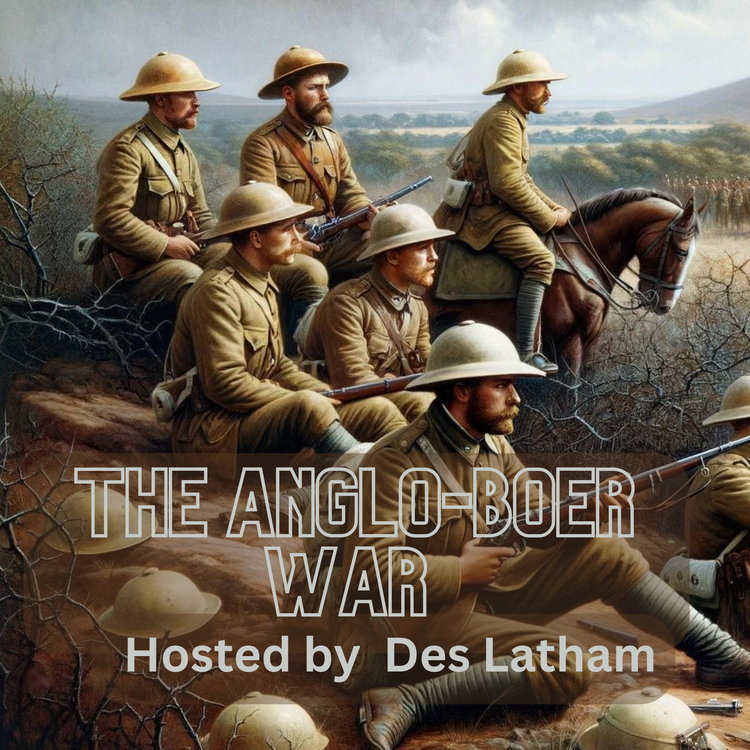
Episode 64 - De Wet’s flood, de la Rey's victory & Canadians shoot up a Cape Town bar
Loading player...
This week its back to the guerrilla war but there are challenges for both sides. Not least being the weather.
This had a major impact on Boer general Christiaan de Wet in particular, because a drought through November 1900 meant there was no easy way for him to move into the Cape Colony.
Nature seemed to conspire against him as you’ll see, because when it eventually rained, that also proved to be a problem. Because he was deeply religious, he regarded this as a sign from above that invading the Cape might not be such a good idea after all.
There was virtually no grazing through November and into the first week of December - at least in the southern Free State, the horses were growing weaker by the day. If they didn’t recover, they would have to be replaced or his venture was doomed. As de Wet and his commando moved southwards, they skirmished on a daily basis with English and Australian units in the area.
Near Bethulie de Wet met up with General Piet Fourie and Captain Scheepers. He could no longer keep the prisoners he’d taken at Dewetsdorp, and set more than 60 black ox-wagon drivers free. Just to make sure they no longer could work for the British, he handed each a written pass to enter Basutoland.
Closer to Johannesburg, though, General Jan Smuts was having slightly better luck. He was working with General Koos de la Rey and a golden opportunity arose for which these two leaders had been waiting.
For three months ever since British General Clements had stormed up the Moot - or the valley in the Magaliesberg mountain range, the Boers had been on the defensive. Clements was adept at fighting a moving campaign, but every one has a bad day.
His would duly arrive on the morning of the 3rd December.
Meanwhile, in Cape Town This led to one thousand slightly drunk men marching from Maitland Barracks into the Cape Town bowl, the CBD, a journey of around 7 kilometres. One group hijacked a horse and cab, and a dozen climbed aboard as the skittish beast galloped off, bumping other carriages aside.
This had a major impact on Boer general Christiaan de Wet in particular, because a drought through November 1900 meant there was no easy way for him to move into the Cape Colony.
Nature seemed to conspire against him as you’ll see, because when it eventually rained, that also proved to be a problem. Because he was deeply religious, he regarded this as a sign from above that invading the Cape might not be such a good idea after all.
There was virtually no grazing through November and into the first week of December - at least in the southern Free State, the horses were growing weaker by the day. If they didn’t recover, they would have to be replaced or his venture was doomed. As de Wet and his commando moved southwards, they skirmished on a daily basis with English and Australian units in the area.
Near Bethulie de Wet met up with General Piet Fourie and Captain Scheepers. He could no longer keep the prisoners he’d taken at Dewetsdorp, and set more than 60 black ox-wagon drivers free. Just to make sure they no longer could work for the British, he handed each a written pass to enter Basutoland.
Closer to Johannesburg, though, General Jan Smuts was having slightly better luck. He was working with General Koos de la Rey and a golden opportunity arose for which these two leaders had been waiting.
For three months ever since British General Clements had stormed up the Moot - or the valley in the Magaliesberg mountain range, the Boers had been on the defensive. Clements was adept at fighting a moving campaign, but every one has a bad day.
His would duly arrive on the morning of the 3rd December.
Meanwhile, in Cape Town This led to one thousand slightly drunk men marching from Maitland Barracks into the Cape Town bowl, the CBD, a journey of around 7 kilometres. One group hijacked a horse and cab, and a dozen climbed aboard as the skittish beast galloped off, bumping other carriages aside.

